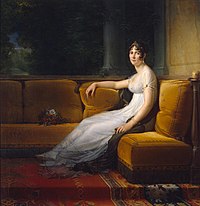For those of you who ever heard of the Madonna,no! the Black Madonna.She is very symbolic to the Catholic church.Yes,she was from Africa where she was capture by arabians during the slave trade,and she some how ended up in italy.She work for the Church and later became a sister,Madonna was not her real name but that name was change on her death bed,whe she was about to Die she held Madonna!,Madonna! Madonna!,and died.She was one of the most admired in the sisterhood.Pope john paul had always kiss a Black statue and it's believed to be the statue of Madonna.
The French under Napoleon there was a woman from Martinique whoes Name Josephine.She was a prostutute who went on to marry Napoleon,it's said that she was the one behind every victory in france,you know why? and now Condeleeza rice,who is very loyal to President Bush.The president may resign or something before her.The french gave the american colonies, a black women in chains statue.which means,let her work for you.
So you see my friends.It's very important for us to spend time with our sons,because the west are very unkind to Them.There are 3 million Blacks in american Jails and more in the europen union.However , those are the only places open up with oppurtunities for a selected few.Life can be a Bitch to a blackman.Brothers control your destiny.
The French under Napoleon there was a woman from Martinique whoes Name Josephine.She was a prostutute who went on to marry Napoleon,it's said that she was the one behind every victory in france,you know why? and now Condeleeza rice,who is very loyal to President Bush.The president may resign or something before her.The french gave the american colonies, a black women in chains statue.which means,let her work for you.
So you see my friends.It's very important for us to spend time with our sons,because the west are very unkind to Them.There are 3 million Blacks in american Jails and more in the europen union.However , those are the only places open up with oppurtunities for a selected few.Life can be a Bitch to a blackman.Brothers control your destiny.





Comment